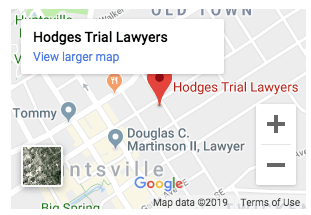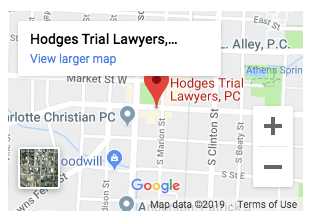A personal injury settlement can affect a divorce case and cause disagreements between the spouses. Normally, in a divorce case, a spouse’s compensation for pain and suffering from a personal injury case is usually considered to be separate property and other parts are split between the spouses. Although this is typical, there are certain situations when a spouse’s compensation for a personal injury may be divided differently in a divorce proceeding.
The compensation that a spouse receives for an injury or illness is normally their own property. In a divorce case, this money will be the spouse’s property unless decided otherwise by the court. Determining what is marital property and what is separate property can be difficult and cause many arguments between the spouses. The court will consider each spouse’s financial need for the award, and the court will decide if a portion of the personal injury suit will positively affect the welfare of the other spouse.
How is a Personal Injury Settlement Divided in Divorce?
Portions of a personal injury settlement may be both marital property and separate property. Pain and suffering is separate property while past medical expenses are marital property. Compensation for lost income is another piece of marital property that may be divided in the divorce settlement.
What Leads to a Personal Injury Suit?
Damages from a personal injury is considered separate property. A personal injury may include pain and suffering, mental agony, disfigurement, and other bodily harm. Personal injury accidents include:
- Car Accidents: Car wrecks comprise most of the common personal injury cases in the United States. Car accidents can cause serious injuries or fatalities to occur.
- Medical Malpractice: This is a claim that occurs when a doctor or other health care professional provides inadequate treatment to a patient who is injured as a result.
- Products Liability: If a product is dangerous in anyway, this can cause injury to the person using it.
- Slip and Falls: A slip and fall accident is caused by a hazard on a premises.
- Assault: This type of personal injury can occur if someone harms or injures another person on purpose.
Awards of Personal Injury Claims
A personal injury settlement needs to specifically allocate award amounts for each type of injury sustained, including the specific dollar amount for pain and suffering. Pain and suffering is always considered a personal property and will be allocated to the spouse with the injury.
The parts of a personal injury settlement that may be divided during a divorce include:
- Medical Expenses: Medical expenses from a personal injury suit can be a significant drain on a couple. Medical expenses are considered marital property because both parties may be liable for the medical bills.
- Lost Income and Wages: A sudden loss of an income can be very detrimental on a couple. Money that is used to compensate the couple during this time is marital property because it supported both people.
- Loss of Spousal Support: During a personal injury, the injured person may not be able to provide emotional support to their partner, and compensation may be entitled due to this lack of partnership assistance.
Non-Marital Assets
Non-marital assets may include the following:
- Payments for Disability or Disfigurement: If someone is left permanently disabled or disfigured from any type of accident, it is considered a personal loss. A spouse will not be able to receive any of this compensation in a divorce settlement.
- Pain and Suffering: The spouse of the injured person cannot experience pain and suffering, so they are not entitled to any of that compensation. This is the most common type of compensation that can not be argued by a lawyer of the opposing party. Pain and suffering is a personal experience, making it a personal asset.
- Job Training: If an injured person needs additional job training to get back to work after an accident, the money allotted is personal property.
- Future Medical Expenses: Compensation for future medical costs is not marital property because it is used after the divorce is finalized.
Alabama Laws
Alabama uses equitable distribution when splitting marital assets, which means that the court will attempt to split assets in a way that accounts for differences in income, health, and more. If an asset is determined to be non-marital, one can keep all of it.
Equitable distribution does not necessarily mean equal. Alabama law allows for each spouse to obtain what is necessary for them to live life separate from each other. If one spouse makes more money than the other, than their settlement may be less than their ex-partner. It all depends on the situation and separate spouses’ financial situations.
Why Should I Hire a Lawyer?
Laws in Alabama can be confusing, and dividing personal injury assets can be challenging. A spouse may be concerned that their ex-partner will attempt to take some or all their personal injury settlement. Another concern is if a spouse attempts to hide the money they received from a personal injury case. It is in a person’s best interest to hire an experienced lawyer to help with the process. Handling this type of case alone could ultimately lead to the loss of more money, and one’s rights will not be properly protected without the help from a lawyer.
Huntsville Divorce Lawyers at Hodges Trial Lawyers, P.C. Help Clients Split Assets During Divorce
If you are currently going through both a divorce and a personal injury case, contact one of our reputable Huntsville divorce lawyers at Hodges Trial Lawyers, P.C. for help with your complicated case. Our dedicated legal team understands the frustration of diving assets in divorce, and we will ensure that your rights are protected. Contact us online or call us at 256-539-3110 for an initial consultation. Located in Huntsville and Athens, Alabama, we serve clients throughout North Alabama, Madison County, Limestone County, Marshall County, Jackson County, Morgan County, and Lauderdale County.



